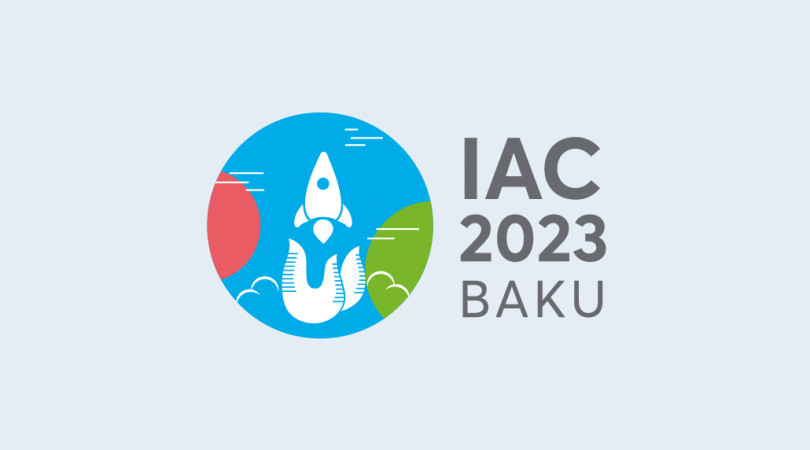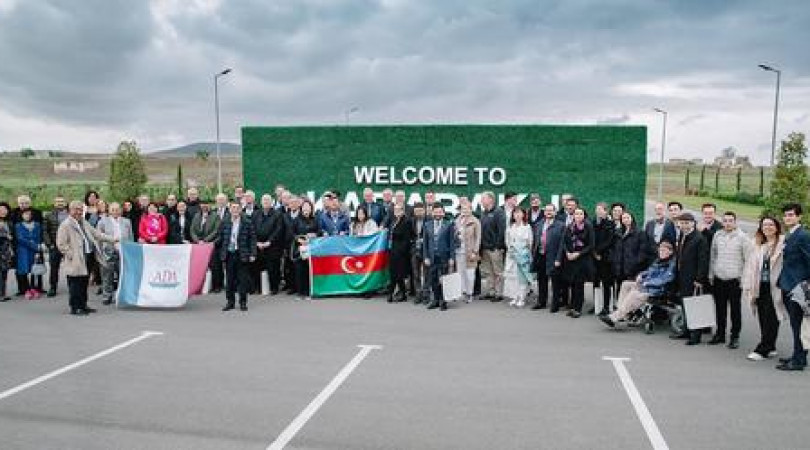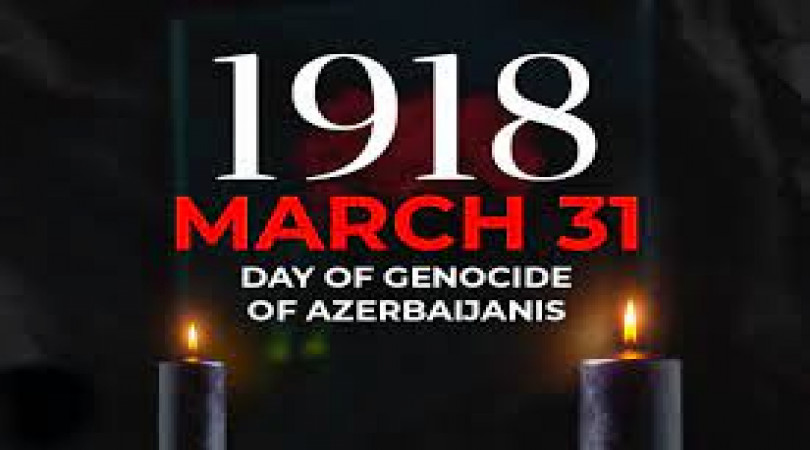2020-07-24
Politicians, journalists warn of grave repercussions of Armenian aggression on Azerbaijani lands
region of Tovuz on July 12, a number of political and media analysts have warned of the serious repercussions of Armenia's attacks on Azerbaijani lands, not only on Azerbaijan, but also on the security and stability of the Caucasus, the Caspian and Eastern Mediterranean regions, as well as the threats to energy supply to Europe.
This came in a symposium organized on Tuesday via ZOOM by the Dialogue Center on Political and Media Studies, in cooperation with Azerbaijan Embassy in Egypt's capital Cairo, and administered by Egyptian journalist Mohamed Talaat, deputy editor-in-chief of Al-Joumhouria newspaper.
Participants emphasized the need for international mobilization through the United Nations forums, the Security Council and regional and continental organizations, to face Armenia's provocations, expose its plans to destabilize the security and stability of the entire region, threaten global energy sources, disclose its aggression and violations against Azerbaijani territories and its destruction of human and Islamic heritage, especially in the Armenian-occupied mountainous region of Karabakh.
Speaking about the recent Armenian provocations on the Azerbaijani border in the direction of Tovuz, Dr. Emil Rahimov, media advisor of Azerbaijan embassy in Cairo, stressed that Armenia is continuously violating ceasefire agreement between the two countries, and it has never implemented the relevant UN Security Council resolutions.
Rahimov called on the international community to put more pressure on Armenia to force it to withdraw from the occupied Azerbaijani territories. Meanwhile, he praised the friendly and brotherly countries for their political support to Azerbaijan.
The media advisor said that the Azerbaijani Armed Forces are capable of defending the country's borders and repelling the Armenian aggressors. He pointed out that Azerbaijan has become a strong actor on the regional and international stages, but it adheres to peaceful options in the restoration of its lands, while cooperating closely with countries in the region and the world in this regard.
For her part, Dr. Nurhan Al-Sheikh, Professor of International Relations, Faculty of Economics and Political Science, Cairo University, spoke about Azerbaijan's fair position in supporting its territorial integrity and sovereignty on the basis of decisions and resolutions taken by international organizations. She also called on Armenia to resolve the conflict peacefully and not to resort to military means and provocations.
Professor of Mathematics, Helwan University, Dr. Adel Darwish, former director of Egyptian Cultural Center in Azerbaijan pointed out that there are many provocations and violations by Armenia against the Azerbaijani people and their lands, as Armenia occupied 20 percent of the area of Azerbaijan, the peaceful country.
Darwish strongly condemned Armenia's latest provocative attacks on the Tovuz region and the mountainous Karabakh region and its surrounding areas, located about 270 kilometers from the Azeri capital, Baku. He indicated that the recent attacks by Armenia are to cover up the failure of Armenia's administration internally, as well as to cover up its failure to implement the resolutions issued by the UN and the Security Council demanding an end to the Armenian occupation of Azerbaijan's territories.
Darwish noted that the campaign launched by the Azerbaijani leader Heydar Aliyev, on the absent justice in the "Khojaly massacre" committed by the Armenian forces with Soviet Union's support on 25 February 1992, will always remain present in the minds of everyone because it is a crime against humanity. The Azerbaijani embassy in Cairo has prepared and screened a documentary film about this massacre.
In turn, the Second Secretary of the Azerbaijani embassy in Saudi Arabia, Imran Sadikov, underlined that the recent Armenian aggression took place at a delicate time for Azerbaijan and for the whole world, as they are preoccupied with fostering synergies to tackle the coronavirus pandemic. He indicated that the Organization of Islamic Cooperation (OIC) has strongly condemned the military provocation committed by Armenia in the direction of the Tovuz region on July 12.
Sadikov commended the Islamic countries' stances supporting Azerbaijan, including the Kingdom of Saudi Arabia, whose embassy in Baku issued a statement asserting that it stands by Azerbaijan in this regard, as well as its adherence to the OIC's positions on supporting Azerbaijan's right to restore its lands and protect its borders. He added that Saudi Arabia was among the first countries to recognize the independence of the Republic of Azerbaijan, stressing that the Kingdom showed a principled and just position on Azerbaijan.
The Azeri diplomat stressed that the position of the countries on the Armenian-Azerbaijani conflict should be determined on the basis of the rule of law and non-occupation of the lands of other nations. He praised the efforts of the Union of OIC News Agencies (UNA) in highlighting the Karabakh issue and exposing the Armenian aggressions.
For his part, Head of the UNA Foreign Affairs Hazem Abdo spoke about the constant support of the OIC and its organs to Azerbaijan in its conflict with Armenia. He stated that Azerbaijan joined the OIC in 1992, and in the first summit the followed its accession, held in Casablanca, Kingdom of Morocco, in 1994, the Karabakh issue was on the table of the summit, which strongly condemned Armenia's aggression against Azerbaijan.
Abdo added that the summit considered the acts committed against the Azerbaijani residents in the occupied Azerbaijani territories as crimes against humanity, and demanded the strict, immediate and unconditional implementation of UN Security Council resolutions 822, 853, 874 and 884, and the complete withdrawal of Armenian troops from all Azerbaijani lands. He also said that the summit affirmed its solidarity and full support for the efforts made by the government and people of Azerbaijan to defend their country.
The UNA official said the Karabakh issue has been on the agenda of all the activities of the OIC summits, pointing out that the pan-Islamic body established a contact group on the Armenian aggression against Azerbaijan. He noted that the last Islamic Summit, held in Makkah in May 2019, urged the OIC Member States to take all necessary measures to implement the relevant resolutions to compel Armenia to abide by UN Security Council resolutions regarding the status of the occupied Azerbaijani lands.
Abdo emphasized the need for making the issue of Armenia's attacks on Azerbaijani lands strongly present in various media outlets to expose the dimensions of this aggression and crimes against the Azerbaijani people, and the civilizational, human and religious heritage in the occupied Azerbaijani lands. He explained that this can be done by holding a series of meetings with the media professionals in various Islamic nations, in addition to the continued publication of backgrounds and historical dimensions of this aggression.
Director of Egypt's Dialogue Center on Political and Media Studies Dr. Ahmed Taher underscored the need for serious support from the international community, and more pressure on the aggressor country to accelerate the settlement of the Armenian-Azerbaijani conflict in the Karabakh region. He also condemned some countries that sell weapons to Armenia.
Meanwhile, Sheikhali Aliyev, chief of the Arabic section at Azerbaijan State News Agency (AZERTAC), said that the media bear a great responsibility for informing the public about the recent events on the frontline, as well as on the Azerbaijani-Armenian border. He added that AZERTAC, which publishes its news and reports in eight languages, has contributed to the disclosure of misleading information and fake news circulated in the aftermath of the clashes with the Armenian armed forces, and provided reliable and accurate information to the public and foreign media about this aggression.
Dr. Jamal Al-Majaida, Emirati researcher and journalist, spoke about ways to reach a political solution to the Azerbaijani-Armenian conflict, saying efforts should be made to bring the parties to the negotiating table, in order to reach a peaceful solution to the conflict, which ensures an end to the occupation of the Azerbaijani lands, cession of the Armenian attacks on Azerbaijan, and restoration of stability in the region, as a key strategic site in the Eastern Mediterranean and Southern Caucasus.
For his part, Dr. Ahmed Abdellatif, Egyptian researcher and academic, shed light on the economic dimensions of the Armenian-Azerbaijani conflict, and the threat it poses to global energy sources and the global trade flows, as well as its negative repercussions on development projects in the whole region.
Dr. Mammadali Babashli, head of the East-West Department of the Institute of Oriental Studies in Baku; and Dr. Guler Gulgaflazy, head of the International Cooperation Department of the Institute of Oriental Studies of Azerbaijan National Academy of Sciences (ANAS). They both presented their views on this topic, noting that Azerbaijan is an integral part of the Islamic world and needs political support from Islamic countries.
The Azerbaijani officials also stressed that Armenia's policy of rapprochement with the Islamic world is a malicious plan that aims to conceal its crimes of destroying Islamic historical, cultural and religious sites in the occupied Azerbaijani territories.
They further affirmed the need for the Arab-Islamic world to remember the Armenian aggression policy against Azerbaijan, and not to take a neutral stance on relations with Armenia.
AB/UNA-OIC
Participants emphasized the need for international mobilization through the United Nations forums, the Security Council and regional and continental organizations, to face Armenia's provocations, expose its plans to destabilize the security and stability of the entire region, threaten global energy sources, disclose its aggression and violations against Azerbaijani territories and its destruction of human and Islamic heritage, especially in the Armenian-occupied mountainous region of Karabakh.
Speaking about the recent Armenian provocations on the Azerbaijani border in the direction of Tovuz, Dr. Emil Rahimov, media advisor of Azerbaijan embassy in Cairo, stressed that Armenia is continuously violating ceasefire agreement between the two countries, and it has never implemented the relevant UN Security Council resolutions.
Rahimov called on the international community to put more pressure on Armenia to force it to withdraw from the occupied Azerbaijani territories. Meanwhile, he praised the friendly and brotherly countries for their political support to Azerbaijan.
The media advisor said that the Azerbaijani Armed Forces are capable of defending the country's borders and repelling the Armenian aggressors. He pointed out that Azerbaijan has become a strong actor on the regional and international stages, but it adheres to peaceful options in the restoration of its lands, while cooperating closely with countries in the region and the world in this regard.
For her part, Dr. Nurhan Al-Sheikh, Professor of International Relations, Faculty of Economics and Political Science, Cairo University, spoke about Azerbaijan's fair position in supporting its territorial integrity and sovereignty on the basis of decisions and resolutions taken by international organizations. She also called on Armenia to resolve the conflict peacefully and not to resort to military means and provocations.
Professor of Mathematics, Helwan University, Dr. Adel Darwish, former director of Egyptian Cultural Center in Azerbaijan pointed out that there are many provocations and violations by Armenia against the Azerbaijani people and their lands, as Armenia occupied 20 percent of the area of Azerbaijan, the peaceful country.
Darwish strongly condemned Armenia's latest provocative attacks on the Tovuz region and the mountainous Karabakh region and its surrounding areas, located about 270 kilometers from the Azeri capital, Baku. He indicated that the recent attacks by Armenia are to cover up the failure of Armenia's administration internally, as well as to cover up its failure to implement the resolutions issued by the UN and the Security Council demanding an end to the Armenian occupation of Azerbaijan's territories.
Darwish noted that the campaign launched by the Azerbaijani leader Heydar Aliyev, on the absent justice in the "Khojaly massacre" committed by the Armenian forces with Soviet Union's support on 25 February 1992, will always remain present in the minds of everyone because it is a crime against humanity. The Azerbaijani embassy in Cairo has prepared and screened a documentary film about this massacre.
In turn, the Second Secretary of the Azerbaijani embassy in Saudi Arabia, Imran Sadikov, underlined that the recent Armenian aggression took place at a delicate time for Azerbaijan and for the whole world, as they are preoccupied with fostering synergies to tackle the coronavirus pandemic. He indicated that the Organization of Islamic Cooperation (OIC) has strongly condemned the military provocation committed by Armenia in the direction of the Tovuz region on July 12.
Sadikov commended the Islamic countries' stances supporting Azerbaijan, including the Kingdom of Saudi Arabia, whose embassy in Baku issued a statement asserting that it stands by Azerbaijan in this regard, as well as its adherence to the OIC's positions on supporting Azerbaijan's right to restore its lands and protect its borders. He added that Saudi Arabia was among the first countries to recognize the independence of the Republic of Azerbaijan, stressing that the Kingdom showed a principled and just position on Azerbaijan.
The Azeri diplomat stressed that the position of the countries on the Armenian-Azerbaijani conflict should be determined on the basis of the rule of law and non-occupation of the lands of other nations. He praised the efforts of the Union of OIC News Agencies (UNA) in highlighting the Karabakh issue and exposing the Armenian aggressions.
For his part, Head of the UNA Foreign Affairs Hazem Abdo spoke about the constant support of the OIC and its organs to Azerbaijan in its conflict with Armenia. He stated that Azerbaijan joined the OIC in 1992, and in the first summit the followed its accession, held in Casablanca, Kingdom of Morocco, in 1994, the Karabakh issue was on the table of the summit, which strongly condemned Armenia's aggression against Azerbaijan.
Abdo added that the summit considered the acts committed against the Azerbaijani residents in the occupied Azerbaijani territories as crimes against humanity, and demanded the strict, immediate and unconditional implementation of UN Security Council resolutions 822, 853, 874 and 884, and the complete withdrawal of Armenian troops from all Azerbaijani lands. He also said that the summit affirmed its solidarity and full support for the efforts made by the government and people of Azerbaijan to defend their country.
The UNA official said the Karabakh issue has been on the agenda of all the activities of the OIC summits, pointing out that the pan-Islamic body established a contact group on the Armenian aggression against Azerbaijan. He noted that the last Islamic Summit, held in Makkah in May 2019, urged the OIC Member States to take all necessary measures to implement the relevant resolutions to compel Armenia to abide by UN Security Council resolutions regarding the status of the occupied Azerbaijani lands.
Abdo emphasized the need for making the issue of Armenia's attacks on Azerbaijani lands strongly present in various media outlets to expose the dimensions of this aggression and crimes against the Azerbaijani people, and the civilizational, human and religious heritage in the occupied Azerbaijani lands. He explained that this can be done by holding a series of meetings with the media professionals in various Islamic nations, in addition to the continued publication of backgrounds and historical dimensions of this aggression.
Director of Egypt's Dialogue Center on Political and Media Studies Dr. Ahmed Taher underscored the need for serious support from the international community, and more pressure on the aggressor country to accelerate the settlement of the Armenian-Azerbaijani conflict in the Karabakh region. He also condemned some countries that sell weapons to Armenia.
Meanwhile, Sheikhali Aliyev, chief of the Arabic section at Azerbaijan State News Agency (AZERTAC), said that the media bear a great responsibility for informing the public about the recent events on the frontline, as well as on the Azerbaijani-Armenian border. He added that AZERTAC, which publishes its news and reports in eight languages, has contributed to the disclosure of misleading information and fake news circulated in the aftermath of the clashes with the Armenian armed forces, and provided reliable and accurate information to the public and foreign media about this aggression.
Dr. Jamal Al-Majaida, Emirati researcher and journalist, spoke about ways to reach a political solution to the Azerbaijani-Armenian conflict, saying efforts should be made to bring the parties to the negotiating table, in order to reach a peaceful solution to the conflict, which ensures an end to the occupation of the Azerbaijani lands, cession of the Armenian attacks on Azerbaijan, and restoration of stability in the region, as a key strategic site in the Eastern Mediterranean and Southern Caucasus.
For his part, Dr. Ahmed Abdellatif, Egyptian researcher and academic, shed light on the economic dimensions of the Armenian-Azerbaijani conflict, and the threat it poses to global energy sources and the global trade flows, as well as its negative repercussions on development projects in the whole region.
Dr. Mammadali Babashli, head of the East-West Department of the Institute of Oriental Studies in Baku; and Dr. Guler Gulgaflazy, head of the International Cooperation Department of the Institute of Oriental Studies of Azerbaijan National Academy of Sciences (ANAS). They both presented their views on this topic, noting that Azerbaijan is an integral part of the Islamic world and needs political support from Islamic countries.
The Azerbaijani officials also stressed that Armenia's policy of rapprochement with the Islamic world is a malicious plan that aims to conceal its crimes of destroying Islamic historical, cultural and religious sites in the occupied Azerbaijani territories.
They further affirmed the need for the Arab-Islamic world to remember the Armenian aggression policy against Azerbaijan, and not to take a neutral stance on relations with Armenia.
AB/UNA-OIC
















